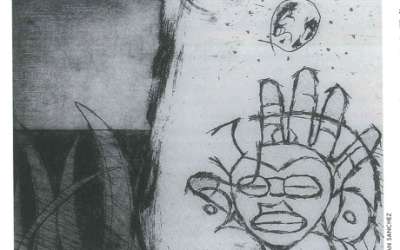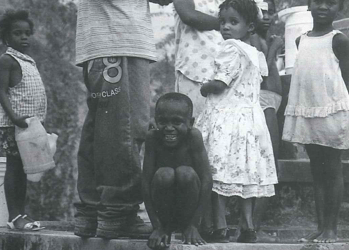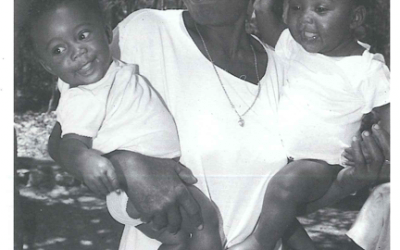Brazilian Women’s Voices
What the Tape Recorder Didn’t Capture
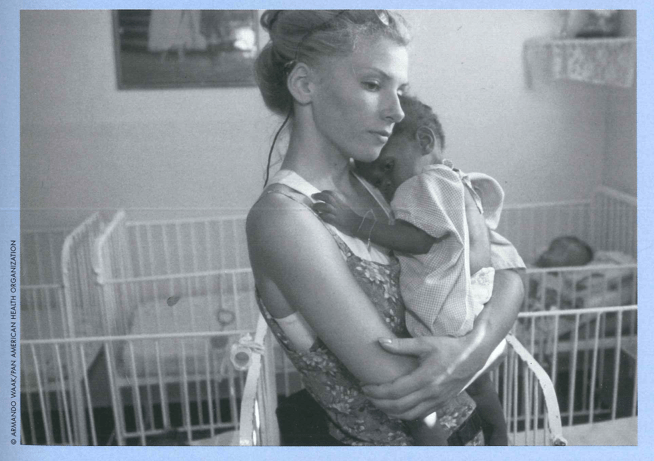
Siripanth Nippita learned to listen to the concerns of Brazilian Women.
The faint smile on Mariana’s lips intensified as she reminisced about the lazy Brazilian days she had spent on a farm during her last vacation. She described the vast fields and the warm, fresh milk on the breakfast table every morning, and we almost forgot about the nurses and doctors bustling around. We were quickly reminded that their presence was needed as Mariana’s words slowly trailed off, her smile disappearing. She pressed her lips into a straight line, shutting her eyes tightly as she endured the effects of the pills she’d taken just hours earlier.
Mariana was faced with an unplanned, unwanted pregnancy that threatened her ability to keep her job and would make her a mother at the age of eighteen. She had confided in a friend, who had procured the ulcer medication Cytotec for her on the black market. The drug causes uterine contractions and is contraindicated for pregnant women. However, Brazilian women often use it for the express purpose of inducing abortion. In Brazil, a largely Catholic country where the procedure is illegal, those with financial means may obtain safe medical abortions in private clinics. Women who cannot afford abortions silently use Cytotec or other methods, subjecting themselves to the numerous health risks associated with unsafe or incomplete abortions. Some, like Mariana, make it to the hospital. Others never do. All women who have abortions, however, must contend with the severe and inevitable societal disapproval inherent in doing such an act.
In research for my senior thesis, I wanted to find out how Brazilian women dealt with social pressures and the myriad emotions they might feel following an abortion. How would women hospitalized for complications from incomplete abortion reconcile their experience and beliefs with an act considered morally wrong by many and illegal by their government As a researcher and as a woman, I also wanted to know if and how other women hid or expressed feelings of sadness, regret, shame, the wish to keep one’s life just the way it was, and perhaps the tiniest sense of relief, albeit probably enveloped in guilt. More than once, I stopped myself mid-trudge heading up the faded blue steps to the maternity ward. Was I overstepping personal boundaries and asking too much The women I interviewed would tell me if that was the case, but I would never expect some interviewer to ask me the same questions.
On one of my first few days in the hospital, I stopped at the preemie nursery, awed at the sight of the smallest babies that managed to cling tenaciously to life. My thoughts began to drift to Sudruk, the lone survivor of my younger twin sisters born twelve weeks prematurely. The stream of memories from home was interrupted by a voice that said, “These little babies they’re like little dolls” said a teary-eyed Brazilian woman who looked as though she was six months pregnant. Márcia had miscarried 15 days before, and she had begun a futile search for Cytotec to expel the fetus. “The girls who want to take theirs out can take medicine and it comes out they find it, and I couldn’t. They come in and go home the next day. It’s not fair” I felt totally unable to help another person, and it certainly was not the last time I’d encounter that feeling during the course of the summer.
It came as a surprise to me that it was usually when the tape recorder was taking a break from capturing interview data that I learned the most from the different women I saw and spoke to in the hospital each day. It became a habit to sit and pass the long evening hours with them after senior thesis research was done for the day. Morning hospital rounds and afternoon visitors were distant memories by the time dinner plates were collected, but evenings usually spent with families and other loved ones had not been replaced by another hospital routine to mark the passage of time. Exhausted new mothers could nap with their little ones in bassinets at their sides or satisfy their cries to be held and fed. Women like Mariana, Neide, and Ana Paula, who were there for reasons other than obstetrics, offered me anecdotes on love, life, inequality, and hardship during those calm evenings.
“I don’t fight. I don’t curse. When the time comes, I just leave.” Neide explained in her quiet but defiantly resistant voice as she told all of us how she left a man less than two weeks before she was to marry him. “He was so taken aback when he saw the moving truck outside the house he spoke badly to me and cursed others when I told him to please stop, he turned to me and said get used to it, because this is the way I am you have to either accept it, or leave. It’s a lack of respect these things don’t get better with time, it keeps getting worse and worse, and if you stay, he just stays the same way”
Ana Paula nodded, her eyes brimming with the wisdom that comes from one ex-husband and four children. The 24-year-old woman hadnt seen her daughter from a previous marriage in years; her little girl was already eight years old by that time. Ana Paula lived with her three other younger daughters, but it seemed as though not seeing the eldest created some emptiness in her life along with another situation: “I dont have sons. I think that all the sons Ive ever been pregnant with, Ive lost.”
One of Neides unfulfilled wishes was to go to college. After cautioning me “not to mess with this marriage stuff,” she explained why it was impossible for poor people to ever make it past high schoolso much stood in the way of their even taking the vestibular, the national college entrance exam. “The minimum salary (was about $80 per month at the time)…A book to study for the vestibular is ($ 40). How can people survive Its already half your salary, you have to take the bus, get a snack, pay a fee to take the exam. For poor people, there is simply no way.”
The stories they told me might seem unremarkable they happen to different people in some way, shape or form all over the world. They are told and re-told to friends, sisters, and daughters. They were shared with me, however, on the rare occasion that I left my own friends and family to go to a place unlike any other Id ever been. They made me laugh, contemplate, and cry, sometimes in the span of only thirty minutes. I arrived as a researcher from a relatively privileged background and in every sense a foreigner whose Portuguese wasnt anywhere close to being perfect. The women became more than subjects and patients who needed to come to the hospital, and I turned into something more than the researcher that came in earlier those evenings. I was someone who wanted to know about them as people, who wanted to learn about how things work in their country and what their lives were like.
I returned from Brazil to the security of my Currier House single with answers to my questionnaires, field notes, and tapes to transcribe. With the untiring support of my thesis adviser, I re-thought and re-framed the questions I wanted to ask about abortion in Brazil, and the differences between how the topic was discussed in public and in private. For almost two semesters, I tried to answer those questions. As my deadline of March 23, 2000 approached, I knew that Id learned a lot about Brazilian discourse on abortion in the public and private spheres. Arguments of necessity, morality, importance of health, and the value of human life confronted each other, but the degree to which they appeared varied according to the circumstances surrounding a speech, narrative, or discussion. Be it on the floor of a congressional debate or in an intimate conversation between best friends, these issues surface in various combinations, demonstrating that the boundary between public and private is permeable.
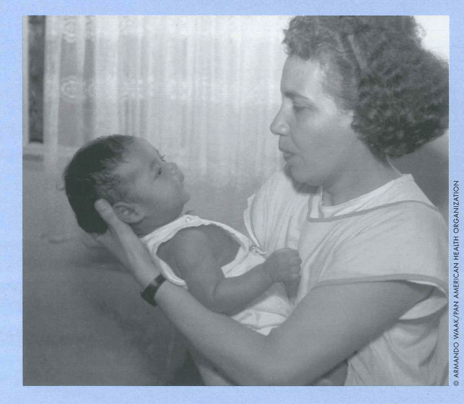
Nursing newborns to health.
I realized that there was a serious rift between public and private discourse, in that the terms of necessity so prevalent in the latter was much less prominent in the former, which tended to use terms of morality, public health, and the value on human life. It was problematic, I wrote, for two reasons. At the public level, it signifies a break in the consensus on societal norms and points to an incongruity between moral standards and practice. More serious still were the ramifications for individuals in the private sphere. As I had seen myself and had read about further in the work that others had done, many women experienced difficulty coming to terms with abortion, attributable in part to the severe societal sanctions against it.
Those were the very valuable lessons I learned from writing my senior thesis. I spent endless days and nights sitting at my desk, on the floor, in the libraryworlds away from Brazil, thinking about how the words of the women Id met made sense (or didnt) within the context of the sociopolitical climate surrounding abortion. Throughout those months, I could not help but recall expressions on faces. On a good day, there were contemplative and sometimes enigmatic smiles; tired, fearful, and yet hopeful eyes. At other times, faces gave away that young eyes had already seen so much suffering, or they were altogether hidden from the world because of physical pain. I remembered just a small effort could brighten up someones day with a willing ear to listen and nothing more, to break up the endless hours in an evening at the hospital and make it turn quickly into night. I remembered feeling that it was so unfairthat my contribution to them was so little compared to what they were able to give back me. I wanted so much to be able to offer real physical remedies to their pain and suffering, to have just the right combination of soothing words and medical expertise. Through my last weeks in Brazil, through my roundabout trek back to Cambridge, and through those nights I spent thinking, writing, and editing, their words inspired yet haunted me. I remembered a promise Id made to Neide, and I thought of the many ways I could keep that promise. Nío esquece de nós Dont forget us, Siripanth, she had said. I knew I would not.
Fall 2000
Siripanth Nippita was awarded a DRCLAS travel grant in the spring of 1999 to complete senior thesis research in Goias, Brazil. She is currently working at the Institute for Health and Social Justice, of Partners in Health, and hopes to complete pre-med requirements by the end of the 2001.
Related Articles
Latino Mental Health
What brings you in to see me today?” This is the typical question asked of new patients during a psychiatric evaluation in a Boston clinic. When asked of a Latino patient, however, the answer…
Health: the Hope of Haiti
At no time have I felt more vital than in serving at Partners In Health (PIH), and seldom more needed than in places like Haiti. In the Haitian people, as well as in every other country that PIH serves, we find an…
Whither Equity in Health?
A waiting room in a charity clinic in rural Haiti. It is a humid afternoon, and huge drops of warm rain are starting to fall. A young woman is watching as her ten-year-old son, Dominique, clutches…

